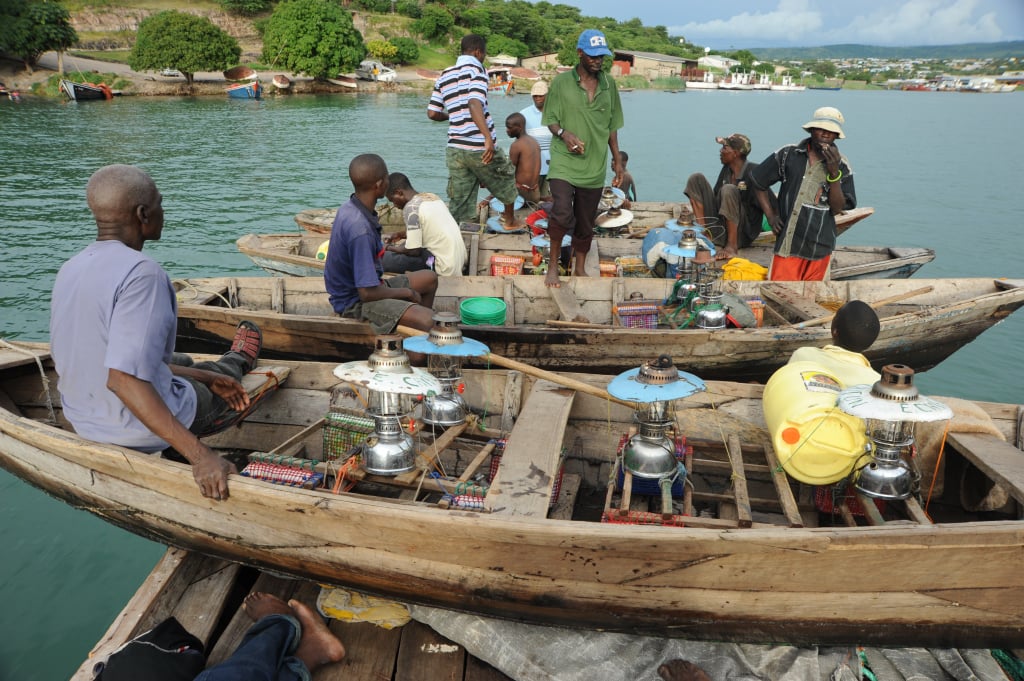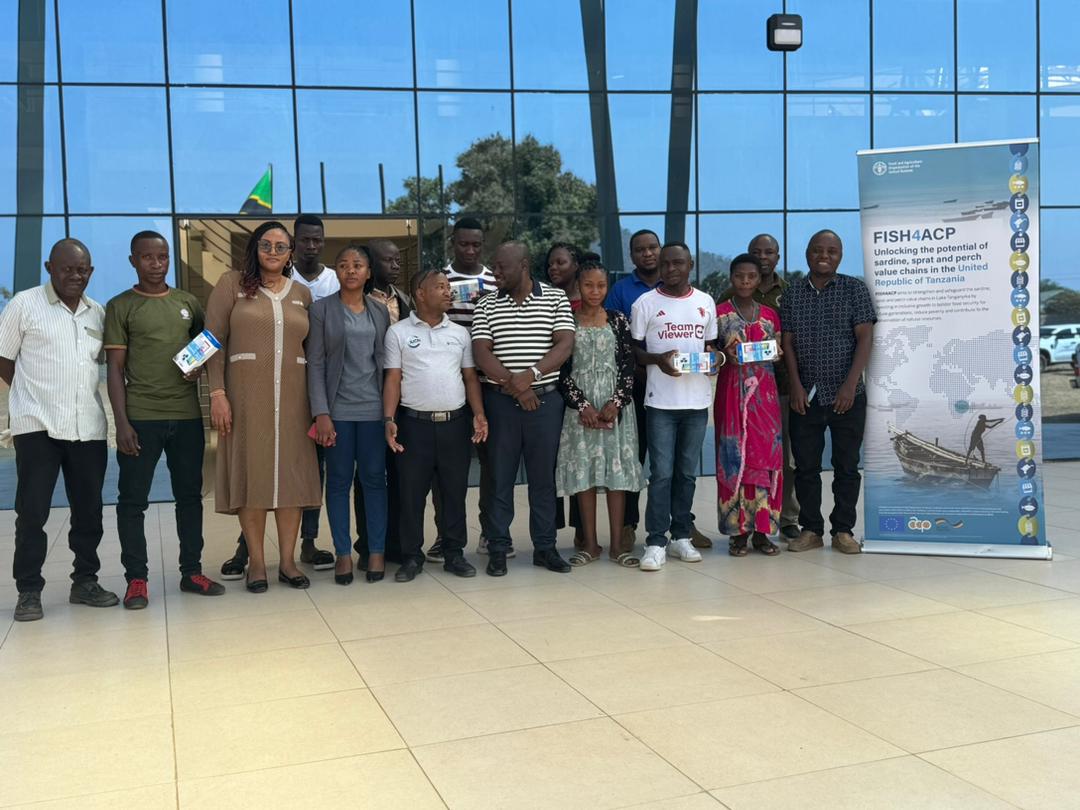
In a bid to enhance sustainable fisheries management and aquaculture development in Tanzania, the government, in collaboration with local and foreign stakeholders, has embarked on concerted efforts to reverse the apparent situation through diverse approaches, including monitoring, regulations, research and suspension methods to maintain sustainable harvest levels. A Senior Officer from the Ministry of Livestock and Fisheries, Owen Kibona, says fish catches have declined from 104,000 tons in 2020 to less than 85,000 tons of fish products in 2023. All countries surrounding Lake Tanganyika agreed to suspend fishing for the period of three months to increase productivity and bring impact on the fishing by creating space for fish breeding growth.
According to Kibona, the training of enumerators, including beach management units (BMU) officers, was part of strategies to collect information useful for the fishery industry development by establishing an accessed database of statistics on the population around the lake, fishery men and women, gears used, rates of fish catch, size of fish, weight and type of species available among other necessary information to be collected.
He noted that fishing efforts and the use of unsustainable fishing methods have continued to increase from year to year, especially in areas that lack alternative livelihoods. In an effort to address the challenge the Ministry of Livestock and Fisheries in collaboration with the Tanzania Fisheries Research Institution (TAFIRI) has been embarked in improving the fishing industry in the Lake Tanganyika through researches to collect relevant information used to increase fish productivity.
Currently, the fishing product enumerators from all districts around Lake Tanganyika and Fishery officers have received a package of training on the best use of fisheries and aquaculture and information management systems (FAIMS) to collect accurate and relevant statistics related to fishery activities.
The technology innovator and training facilitator Innocent Sailale said the training was carried out with the intention of ferreting out the factors leading to the decline of fish species in the water body of Lake Tanganyika, adding that the apparent situation led to the suspension of all fishing activities for three months from May 15 to August 15, 2024.
He said the Ministry of Livestock and Fisheries had embarked on developing information technology through electronic use training to collect data for enhanced data collection, which has reduced by 75 per cent the cost of research in various water bodies, including the Indian Ocean, Lake Victoria and Lake Tanganyika.
The Government, in collaboration with stakeholders including the Food and Agriculture Organization of the United Nations (FAO), World Wild Fund, Nature Conservation and the FISH4ACP Project funded by the European Union and the Government of Germany, have supported the training of enumerators training and equipment for surveying including telephone gargets, raincoats, and gumboots. The training conducted at Mpanda in Katavi region involved participants from Tanganyika and Kalambo districts held from August 10 – 13 prior to training conducted in Ujiji, Kigoma on August 5 -8, 2024, for participants from Kigoma Rural and Kigoma Urban districts, respectively. Experience from the Indian Ocean and Lake Victoria has been the pivotal approach with impact after the government introduced the fisheries and aquaculture and information management systems leading to the increase of fishing products.
It has been a common practice to stop fishing for a certain period to enhance the fishing growth as it allows time for fish increase during the time allowed for fishing.
The Acting Director for TAFIRI Station in Kigoma Region, Prisca Mziray, clarified the significance of the four-day long training, which she said will result in accurate, appropriate and more reliable information to be collected. She elucidated that the survey conducted in 2011 and the years later found a shocking decline of fish products in the water bodies, including the Indian Ocean and Lake Victoria; “this is the turn for Lake Tanganyika followed with the burn of fishing for a period of three months planned to end on August 15, 2024,” said Mziray adding that trained enumerators will start immediately to collect useful information from the local stakeholders including processors, transporters, and fishermen.
Julius Kitanga, the executive secretary of the Beach Management Unit from Karema village, said the training enabled them to improve the collection of information through a new electronic approach using fisheries and aquaculture and information management systems (FAIMS).
Veronica Makwaya from Karema village said they were given skills to conduct the survey adding that they incur expenses of communication as they purchase vouchers for themselves.
BACKGROUND
In 2009, as a result of uncontrolled fishing efforts due to the influx of returnees, inefficient national efforts to monitor their fisheries, and the observed decline of fishery resources, the four countries bordering Lake Tanganyika (Burundi, Democratic Republic of Congo, Tanzania and Zambia) established a regional coordinating body called the Lake Tanganyika Authority to implement fisheries conservation and management measures in compliance with the Convention on the Sustainable Management of Lake Tanganyika.
To inform and enable a fisheries monitoring program on Lake Tanganyika, the Authority conducted a lake-wide fisheries frame survey in 2011 to inventory the number of fishermen, fishing units and fisheries infrastructure around Lake Tanganyika. When comparing the 2011 frame survey with data from a similar survey conducted in 1995 (the two most extensive studies to date on Lake Tanganyika), results revealed troubling trends in fish capacity, including an increase in illegal fishing gear, a doubling of the total number of fishermen and fishing units, and a decline in catch rates since 2002 (based on Burundi data which has been consistently collected). Because of the observed increase in fishing capacity (e.g. the numbers of vessels, licenses and fishermen), the pressure needed for an effective fishery management program is indispensable.
Past management efforts have been made from within the basin by the individual countries (Burundi, Democratic Republic of Congo, Tanzania and Zambia), transnational organizations (Food and Agriculture Organization of the United Nations), and the Lake Tanganyika Authority. “Using current nations of fishery management on large lakes in the region and ideas from a case study from Gambia, West Africa, this study suggests that effective fishery management on Lake Tanganyika requires the adoption of a formal Monitoring, Control & Surveillance system, community surveillance, an improvement in licensing systems, and a limitation in the number of fishermen and fishing units. (Lake Tanganyika Fisheries Assessment: By M. Van der Knaap, et al).

